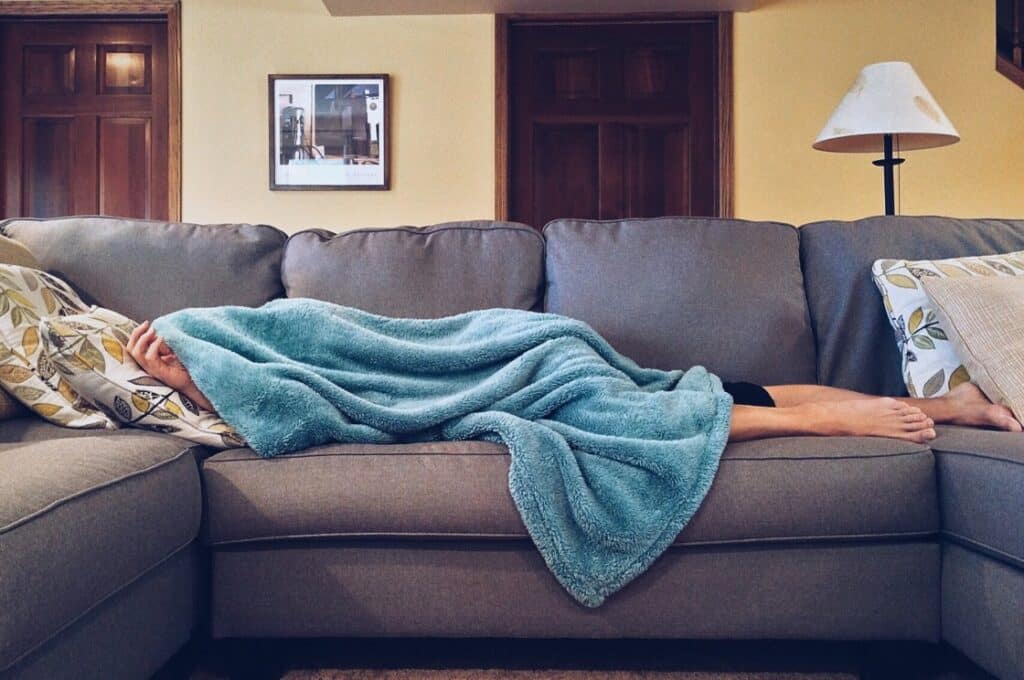It can be hard to tell the difference between fatigue and anxiety-induced fatigue. Fatigue is a normal reaction to the exertion of the body for prolonged periods. However, when you feel fatigued even after periods of rest, like a good night’s sleep, you may want to question whether or not other factors are contributing to your fatigue. One factor that can come into play is anxiety. If you struggle with anxiety, your fatigue may be a symptom of it. How do you know if your fatigue is anxiety-related?
What Is Fatigue?
To determine the cause of your fatigue, you must first understand what fatigue is. Fatigue is the feeling of being overtired and having low energy. This feeling can interfere with your daily activities, as it causes you to sleep more without easing that tired feeling.
Recognize that fatigue is not an independent feeling; it must be caused by another underlying issue. That could be sickness, being unhealthy, anxiety, overworking your body, and more. Knowing that fatigue is a symptom is another factor; you are more likely to search for its cause. You should treat fatigue the same way you would treat something like a cough or weight gain. It is caused by something else.
Can Anxiety Cause You to Feel Fatigued?
The short answer to this question is: absolutely. Fatigue can definitely be caused by anxiety. Anxiety affects your physical health in many ways. There are both short-term and long-term effects of anxiety. When you experience anxiety, your body is affected. You can have an increased heart rate and blood pressure, your breathing increases, and you may feel shaky. Over time, the stress anxiety causes on your heart and lungs can cause these organs to become tired, and this may lead to increased feelings of fatigue.
Long-term effects of anxiety include lowered immune response and an increased chance of sickness. These cause you to become ill more often and contribute to fatigue slipping back into your life.
This is why it is important to manage stress and cope with your anxiety in healthy ways.
Talk to Your Doctor About Your Fatigue
One way to understand the cause of your fatigue is by asking your doctor. They can listen to what you are feeling and take the steps necessary to find the cause of your fatigue. However, fatigue is tricky. Because it is caused by many different conditions, it is hard to identify its specific cause. More often than not, your fatigue is caused by multiple different factors.
Your doctor can give you different tips on how to decrease feelings of fatigue. Not all of them may be relevant to you because of how hard the cause of fatigue is pinpointed. A doctor may recommend the following.
Eat Healthily and Exercise
Eating excess amounts of unhealthy foods contributes to weight gain and increased stress on the body. These can cause increased fatigue, so eating a healthier diet can lower levels of fatigue. Adding exercise to a healthy diet can also assist in lowering fatigue. Exercise releases endorphins that make you feel more awake. After exercising, you may feel a sense of accomplishment and a surge of energy, related to dopamine and adrenaline that are released. Be sure not to over-exert your body, though. Pushing yourself too hard may have the opposite effect that you want.
Limit Smoking
Smoking comes with its own short- and long-term effects, and it isn’t surprising that it contributes to fatigue. Limiting or stopping all intake of these products will help you feel more awake and productive.
Sleep 7 to 8 Hours Each Night
For adults, seven to eight hours is the most appropriate amount of sleep. If you find yourself restless at night, try limiting the technology around you. Don’t look at a TV or phone an hour before bed. Read a book or write in a journal instead. Try a white noise machine if it’s too quiet. You should prioritize sleep for your overall health, but especially to combat fatigue.
Talk to a Therapist
Your doctor may also recommend that you speak with a therapist about your fatigue. The cause of fatigue is difficult to find because there isn’t a test for that. A medical doctor can only give you so many answers. However, a therapist can sit with you and talk about how you have been feeling. As you talk about your life and how your fatigue has impacted you, a therapist will be analyzing the most likely cause of your fatigue.
If you struggle with anxiety, your therapist can help you develop coping strategies to ease its symptoms, including fatigue. You deserve a chance to feel energized in your life. A therapist can help you work toward that goal.
At Mindfuli, we understand how fatigue can dramatically impact your life. Whether it is produced naturally or through your anxiety, it can be a hard battle to fight. You shouldn’t feel like you are alone in this battle. Talking to a therapist can help you focus on the cause of your fatigue. Therapy can help you develop habits that give your mind and body the rest they need so you can face each day with energy and excitement. Don’t let fatigue take over the joys of your life. Take the necessary steps to let yourself have an energetic and happy life. To find out more about our services, call Mindfuli today at (866) 973-4415.
